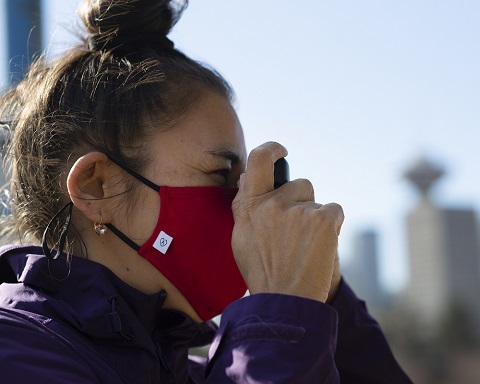By Jean-Paul Lebel, L’Itinéraire
Twenty-five years ago, I was on the street with no goals, no life, no home, and no moral or emotional support. When you’re that low—I’m talking rock bottom—even if you’ve got a girlfriend and friends, when you’re an addict, no one gives a damn about anything, not even their own life.
In 1994, Sandra and I broke up. She’s the mother of my first two kids, Roxanne and Brenda. At first, things were okay. I made a living washing cars and working in construction, saw my girls every weekend, and had a good relationship with my ex.
But in 1996–1997, Sandra was forced to move to New Brunswick with our daughters. I was devastated because I couldn’t see my kids anymore. I became depressed, and things just fell apart.
I started drinking and doing cocaine. Coke is expensive. It ate up all my money because you can never get enough of it.
Cocaine affects the “happiness gland.” When you take it, your problems seem to melt away. The gland I’m talking about releases dopamine. Normally, dopamine is released when good things happen, but when people use cocaine, the gland gets destabilized. Coke gives you the illusion of happiness. When you don’t have any, you don’t feel happy, even when good things happen.
By 1998, I was on the street with a needle in my arm, sleeping in Viger Square. I saw two people die there: one overdosed and the other was beaten to death with a steel rod. Life on the street is no joke.
One day, I found a bag full of cash at the Berri metro station. I took a fistful of bills. It turns out the money belonged to a street gang—they found me and took the bag back. But since some of the money was missing, they paid me a visit a few weeks later. They broke my nose.
![L'Itinéraire vendor Jean-Paul Lebel. [Courtesy of L'Itinéraire]](https://hub.insp.ngo/wp-content/uploads/2019/09/LIT_Vendor-on-25-years_1.jpg)
That was the year I met T’Chico. He sold L’Itinéraire on Saint-Denis Street. I was begging for money to buy dope. Dope was the worst prison I’ve ever known. It takes over your thoughts, your entire life.
T’Chico told me that you get more out of selling the magazine than begging, because you’re selling a product that allows you to express yourself. It gives a voice to the voiceless.
L’Itinéraire got me off the street. It even got me back in touch with my daughter Valérie. I was profiled in ‘ZOOM Camelot’ [a regular section in the street paper detailing the lives of one of its vendors], where I talked about how selling the magazine helped my self-esteem. It’s not just a magazine—it changes people’s lives.
You’re part of a group that helps society through its social reintegration programs, its workers, and the support they provide. The success stories I was seeing made me realize that I could get off the street too. I found hope. I sent the article to Valérie and she called me. Since then, we’ve developed a good relationship.
Thanks to L’Itinéraire, I’ve stopped getting high. People have seen the change in me and have given me their trust. As a result, I’ve managed to get an apartment and get my life back on track. I have a great relationship with my three girls. We see each other regularly, and I’m on the way to becoming a grandpa for the sixth time.
Nowadays, I’m really involved with the group. I’m vice-president of the board of directors, I write articles, I sell the magazine, and I’m involved in distribution, development, recruitment, and training.
Thank you, L’Itinéraire!
Translated by Michelle Daniel




















